Big Bang of Management (BBM)
Learn the latest knowledge
like Fourth Industrial Revolution 4.0 (IR 4.0) from social sciences perspective through the IR 4.0 pillars of Big Data (BD), Internet of Things (IoT), Artificial Intelligence (AI), and Augmented Reality (AR).
Trusted and Free content
Created by experts, Soulera Academy’s library for the first stage covers 7 courses in social science. Always free for learners. Language of teaching (English + Arabic)
Learn on your schedule
Keep Learning Wherever You Are and lead to real skills mastery
Course 6- Big Bang of Management (BBM)
To understand the management essence, guru, goals, function, history, and the management in 21 Century. How to See the World as a Social Scientist in Business Management. And realize the Way to Success whether is fact or myth.
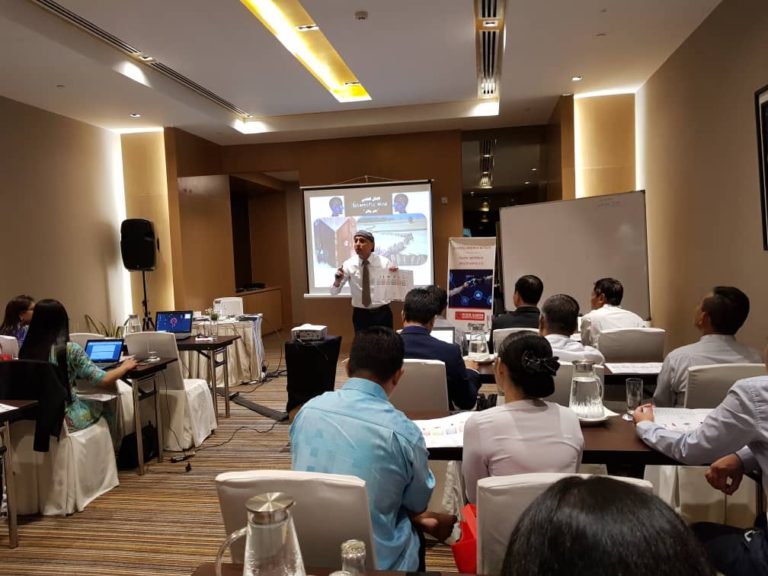
By: Dr. Osama Isaac — Founder
World-Class Education to All
Osama’s life mission is bringing back the soul, passion, and curiosity to education, with the dream to provide free, innovative and world-class education for anyone, anywhere with the focus in the Arab world. He is currently an associate professor at Faculty of Business, Lincoln University College (LUC), and founder of Soulera Academy.
Course BBM Objective
At the end of this Course, you should be able to:
– Know how to manage your time and Life.
– Understand the Goals and Function of the Management
– Know how to manage your organization in the 21st century.
– Know How to See the World as a Social Scientist in Business Management.
– Identify effective decision-making techniques.
– Know how to read and assess an organization’s culture.
– Develop your skill at collaborating in cross-cultural settings.
– Discuss what it means to be socially responsible and what factors influence that decision.
– Know how to make good decisions about ethical dilemmas.
– Develop your skill at choosing an effective leadership style.
– Develop your skill at motivating employees.
– Understand the evolution of management through the model of Big Bang of Management (BBM Model).
– Learn the Principles of Management through the Technique: Teaching by Movies Watching.
Course BBM Description
Course 6 (BBM) contain 12 Sessions as follow:
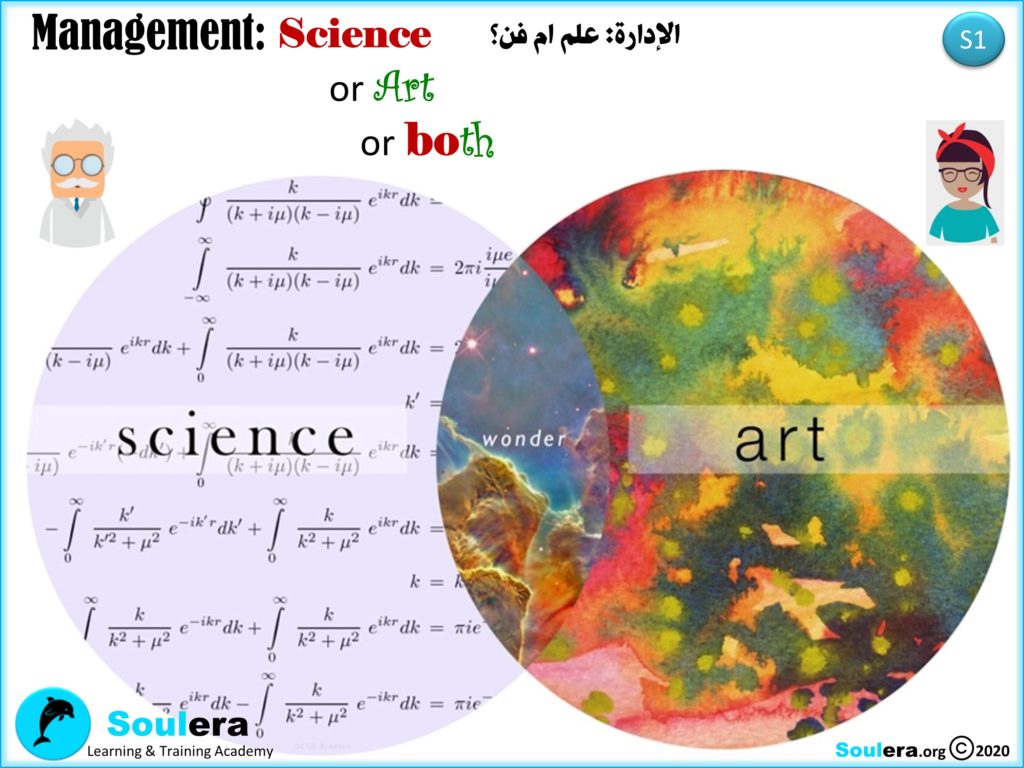
Session 1: Management - art or science
—
Session 2: Management Gurus
—
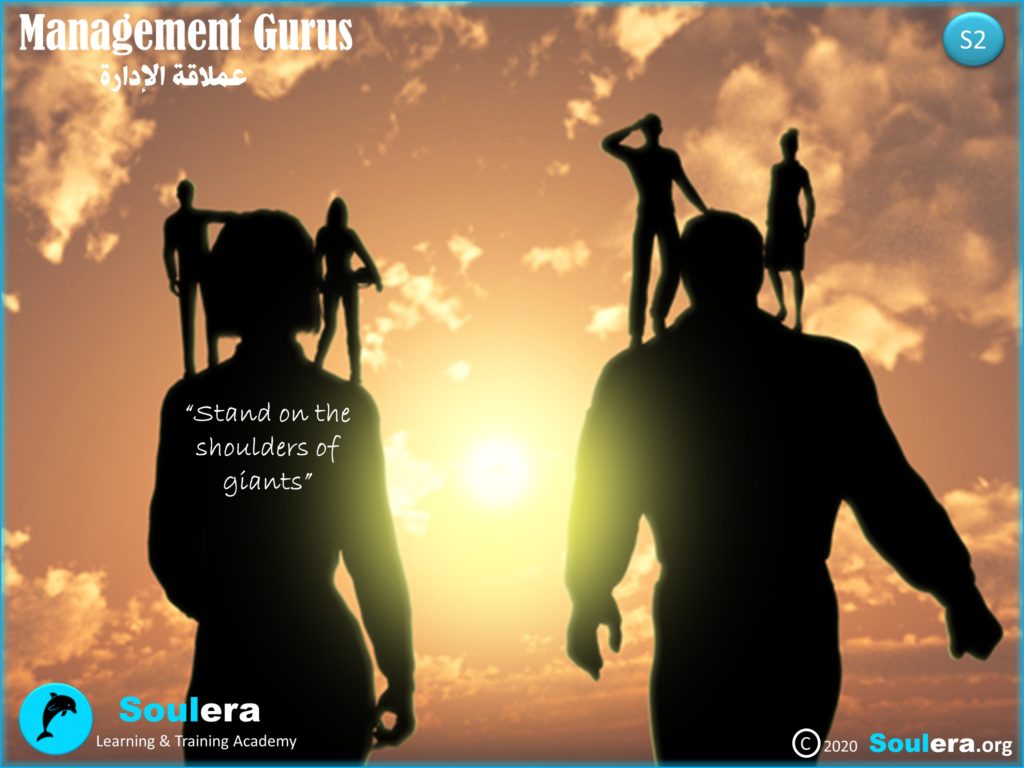
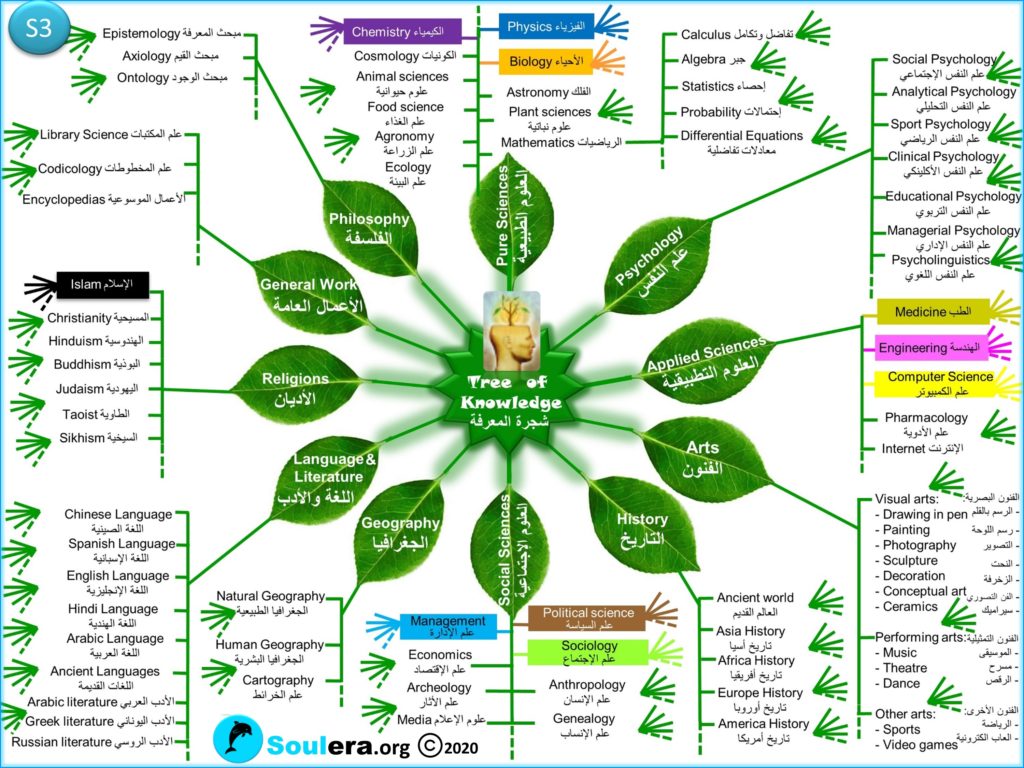
Session 3: Management in the Tree of knowledge
—
Session 4: Management Goals
—
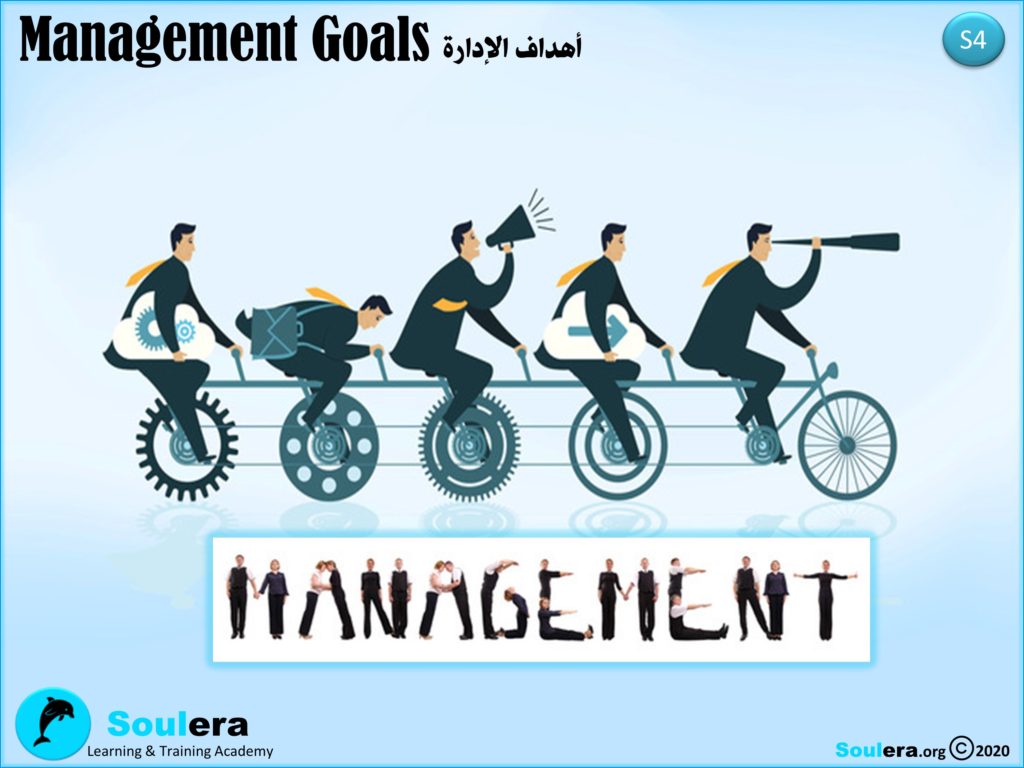
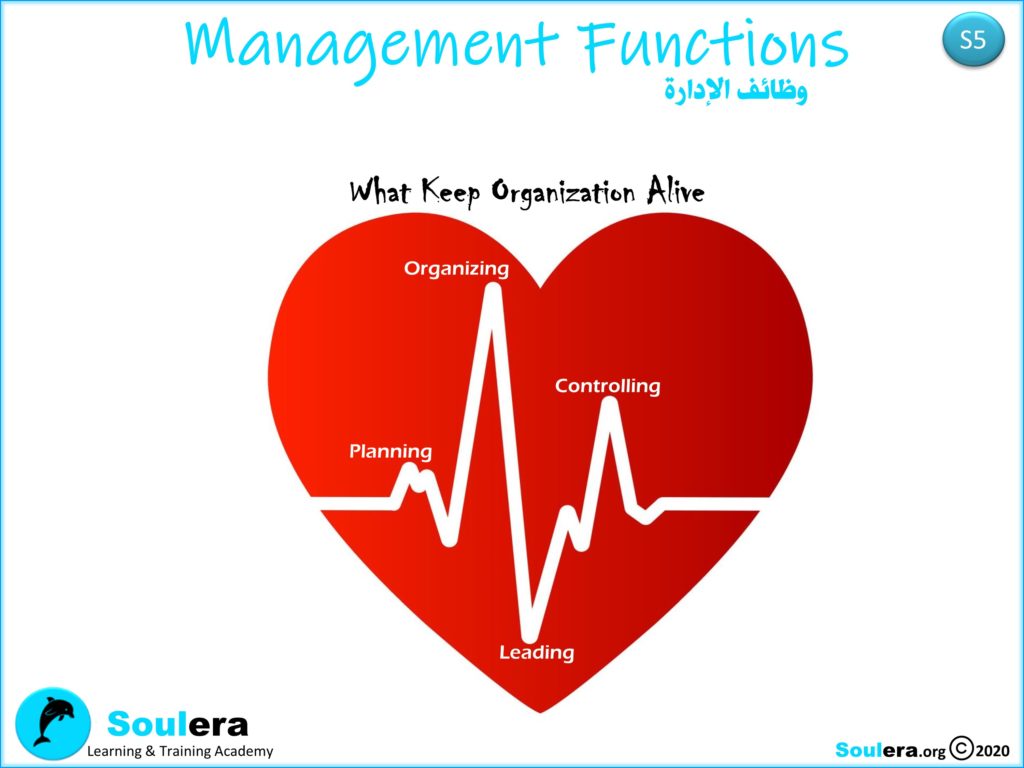
Session 5: Management Function
—
Session 6: Management History
—
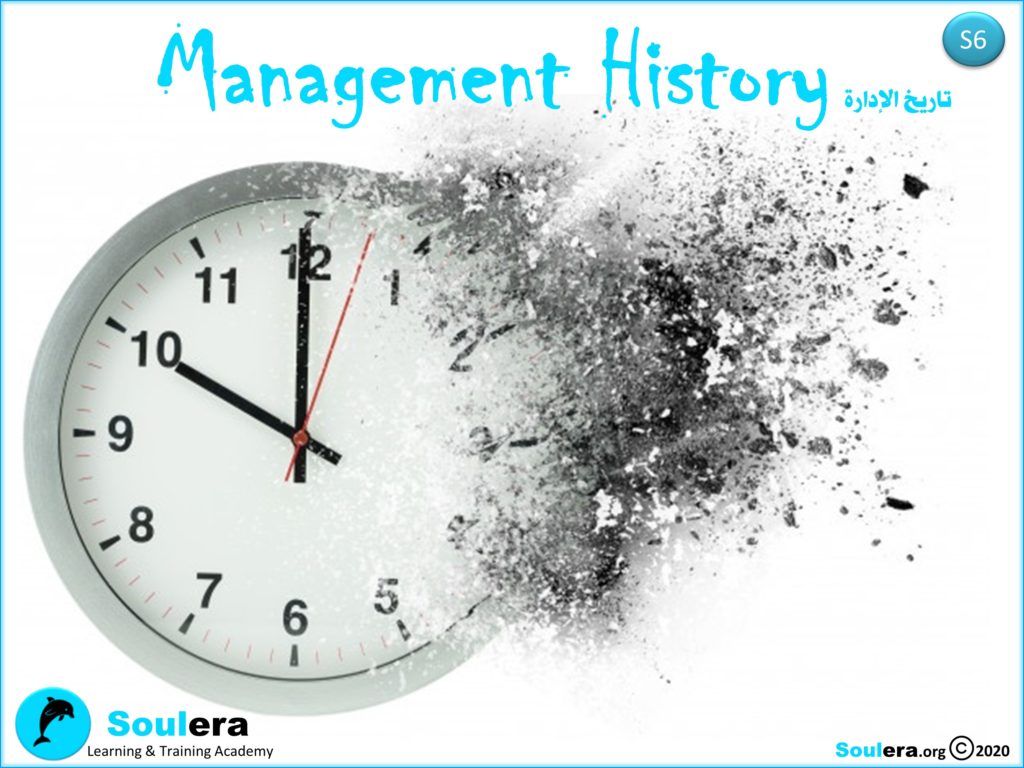
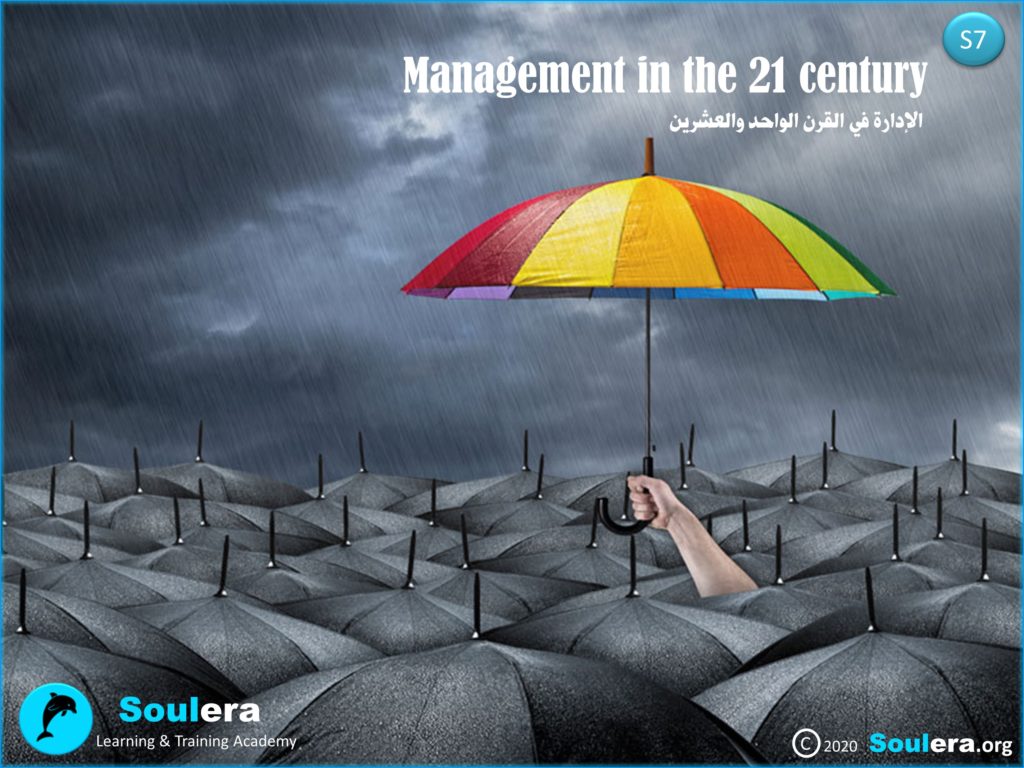
Session 7: Management in 21 Century
—
Session 8: How to See the World as a Social Scientist in Business Management
—
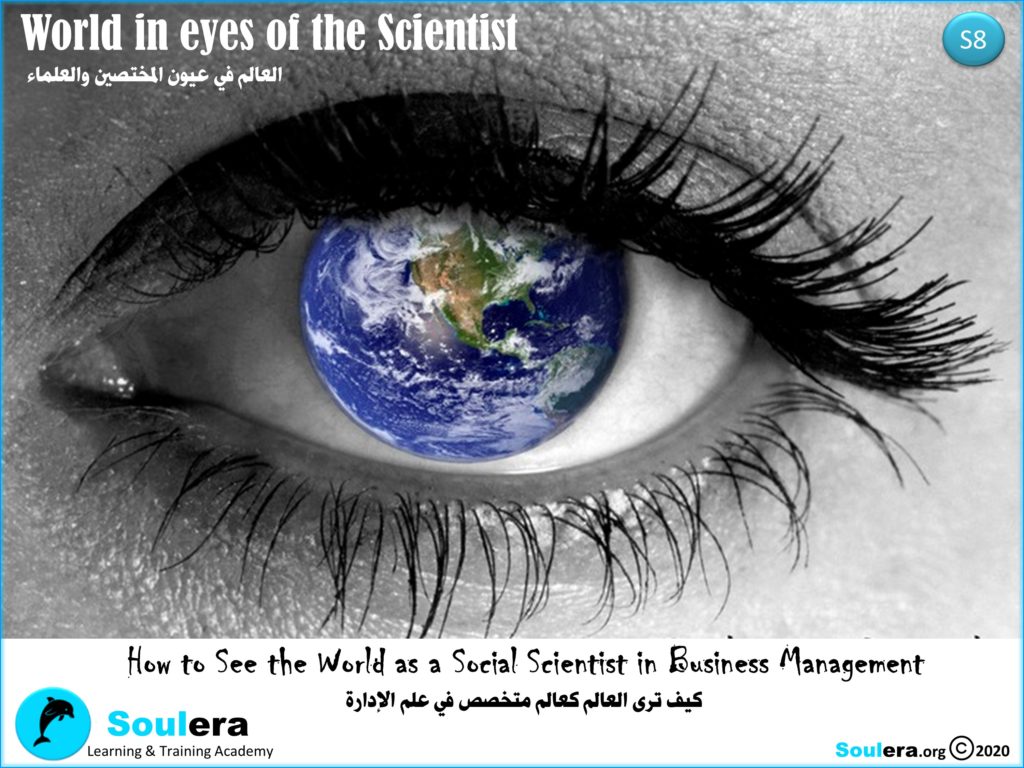
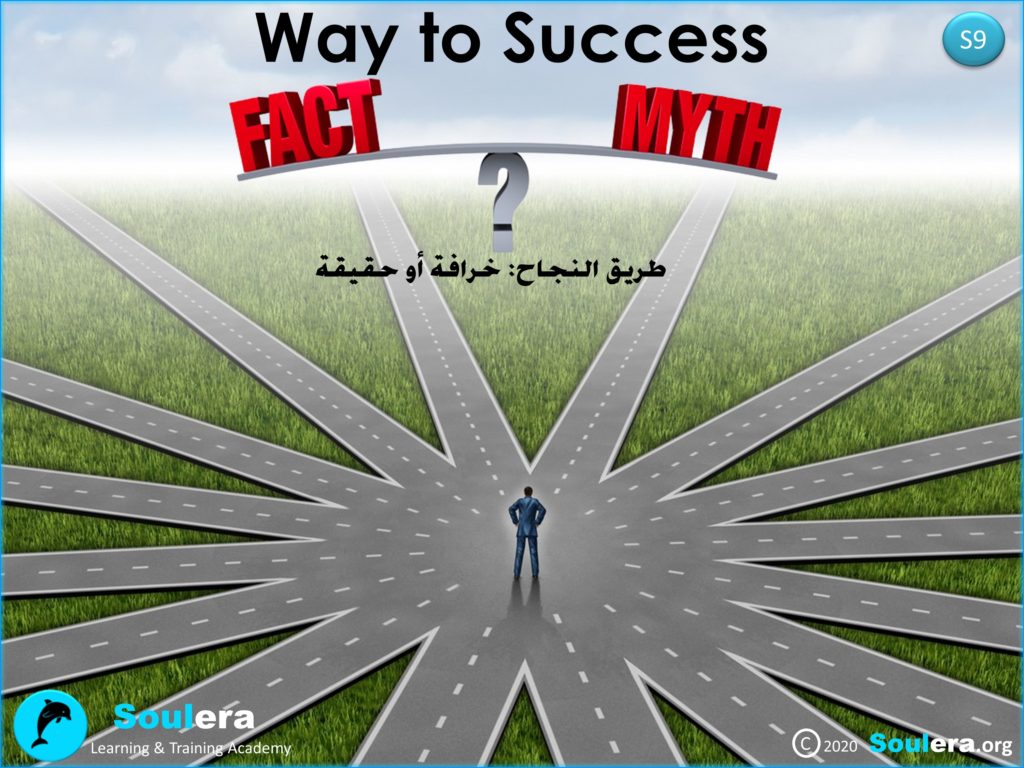
Session 9: Way to Success - Fact or Myth
—
Session 10: Manage your Life
—
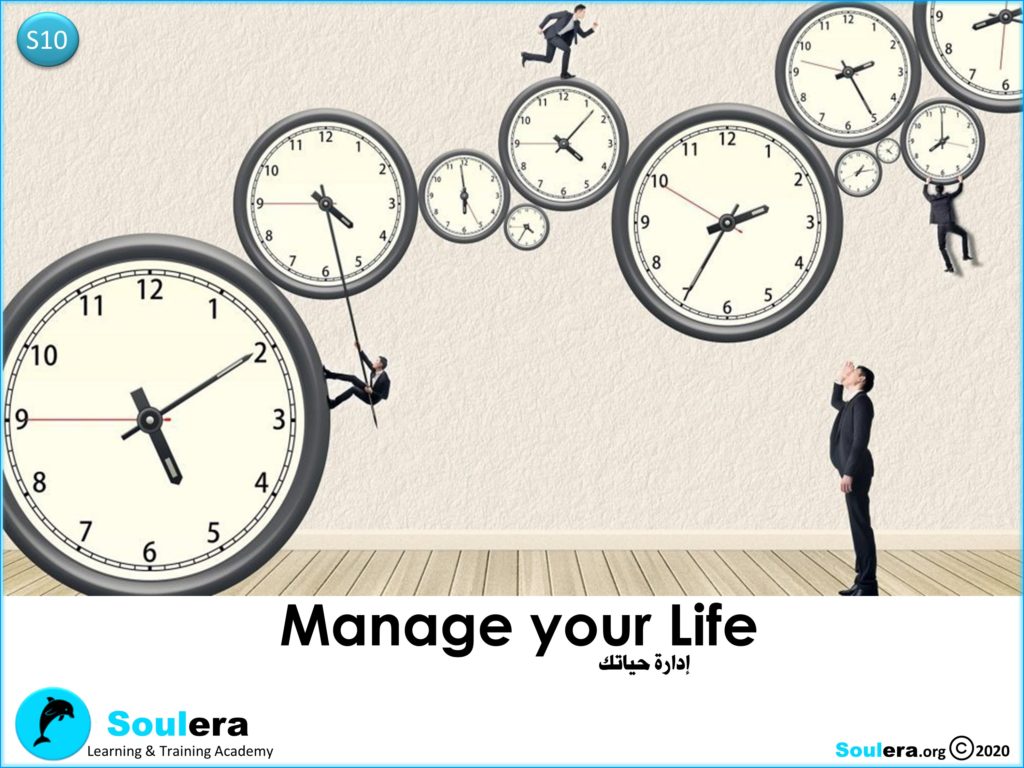
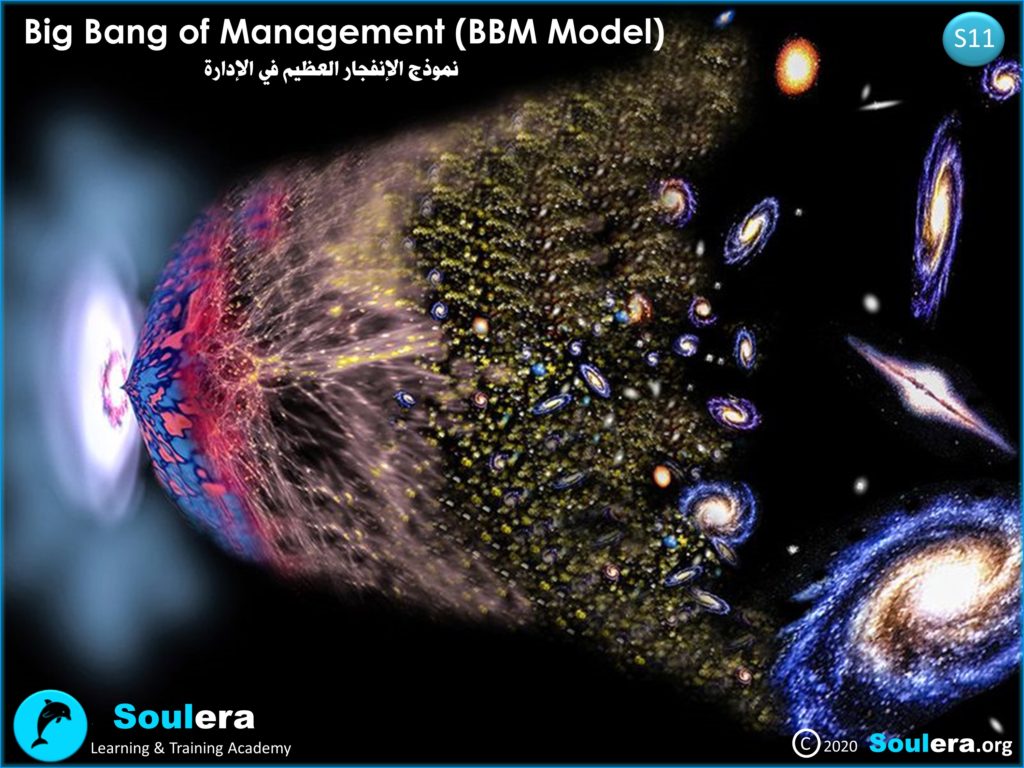
Session 11: Big Bang of Management (BBM Model)
—
Session 12: Principles of Management - Teaching by Movies Watching
—
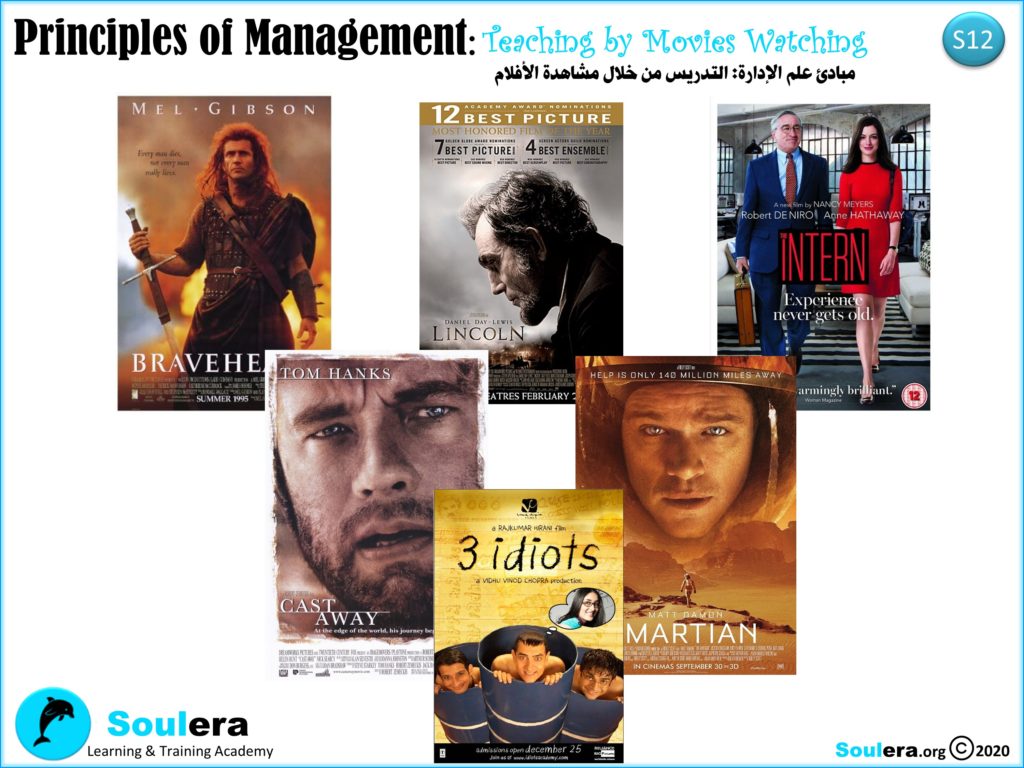
recommended talks
How great leaders inspire action
Simon Sinek, 2009, TEDxPuget
https://www.ted.com/talks/simon_sinek_how_great_leaders_inspire_action
Simon Sinek has a simple but powerful model for inspirational leadership — starting with a golden circle and the question: “Why?” His examples include Apple, Martin Luther King Jr. and the Wright brothers …
The case for letting business solve social problems
Michael Porter, 2013, TEDGlobal
https://www.ted.com/talks/michael_porter_the_case_for_letting_business_solve_social_problems
Why do we turn to nonprofits, NGOs and governments to solve society’s biggest problems? Michael Porter admits he’s biased, as a business school professor, but he wants you to hear his case for letting business try to solve massive problems like climate change and access to water. Why? Because when business solves a problem, it makes a profit — which lets that solution grow.
The puzzle of motivation
Dan Pink, 2009, TEDGlobal
https://www.ted.com/talks/dan_pink_the_puzzle_of_motivation
Career analyst Dan Pink examines the puzzle of motivation, starting with a fact that social scientists know but most managers don’t: Traditional rewards aren’t always as effective as we think. Listen for illuminating stories — and maybe, a way forward.
The happy secret to better work
Shawn Achor, 2015, TEDxBloomington
https://www.ted.com/talks/shawn_achor_the_happy_secret_to_better_work
We believe we should work hard in order to be happy, but could we be thinking about things backwards? In this fast-moving and very funny talk, psychologist Shawn Achor argues that, actually, happiness inspires us to be more productive.
Measuring what makes life worthwhile
Chip Conley, 2010, TED
https://www.ted.com/talks/chip_conley_measuring_what_makes_life_worthwhile
When the dotcom bubble burst, hotelier Chip Conley went in search of a business model based on happiness. In an old friendship with an employee and in the wisdom of a Buddhist king, he learned that success comes from what you count.
The paradox of choice
Barry Schwartz, 2005, TEDGlobal
https://www.ted.com/talks/barry_schwartz_the_paradox_of_choice
Psychologist Barry Schwartz takes aim at a central tenet of western societies: freedom of choice. In Schwartz’s estimation, choice has made us not freer but more paralyzed, not happier but more dissatisfied.
As work gets more complex, 6 rules to simplify
Yves Morieux, 2013, TED@BCG San Francisco
https://www.ted.com/talks/yves_morieux_as_work_gets_more_complex_6_rules_to_simplify
Why do people feel so miserable and disengaged at work? Because today’s businesses are increasingly and dizzyingly complex — and traditional pillars of management are obsolete, says Yves Morieux. So, he says, it falls to individual employees to navigate the rabbit’s warren of interdependencies. In this energetic talk, Morieux offers six rules for “smart simplicity.” (Rule one: Understand what your colleagues actually do.)
How to build a business that lasts 100 years
Martin Reeves, 2016, TED@BCG Paris
https://www.ted.com/talks/martin_reeves_how_to_build_a_business_that_lasts_100_years
If you want to build a business that lasts, there may be no better place to look for inspiration than your own immune system. Join strategist Martin Reeves as he shares startling statistics about shrinking corporate life spans and explains how executives can apply six principles from living organisms to build resilient businesses that flourish in the face of change.
The single biggest reason why start-ups succeed
Bill Gross, 2015, TED
https://www.ted.com/talks/bill_gross_the_single_biggest_reason_why_start_ups_succeed
Bill Gross has founded a lot of start-ups, and incubated many others — and he got curious about why some succeeded and others failed. So he gathered data from hundreds of companies, his own and other people’s, and ranked each company on five key factors. He found one factor that stands out from the others — and surprised even him.
The workforce crisis of 2030 — and how to start solving it now
Rainer Strack, 2015, TED@BCG Berlin
https://www.ted.com/talks/rainer_strack_the_workforce_crisis_of_2030_and_how_to_start_solving_it_now
It sounds counterintuitive, but by 2030, many of the world’s largest economies will have more jobs than adult citizens to do those jobs. In this data-filled — and quite charming — talk, human resources expert Rainer Strack suggests that countries ought to look across borders for mobile and willing job seekers. But to do that, they need to start by changing the culture in their businesses.
Profit’s not always the point
Harish Manwani, 2013, TED@BCG Singapore
https://www.ted.com/talks/harish_manwani_profit_s_not_always_the_point
You might not expect the chief operating officer of a major global corporation to look too far beyond either the balance sheet or the bottom line. But Harish Manwani, COO of Unilever, makes a passionate argument that doing so to include value, purpose and sustainability in top-level decision-making is not just savvy, it’s the only way to run a 21st century business responsibly.
Management lessons from Chinese business and philosophy
Fang Ruan, 2016, TED@BCG Mumbai
https://www.ted.com/talks/fang_ruan_management_lessons_from_chinese_business_and_philosophy
Business management in China is changing, says consultant Fang Ruan. Learn how Chinese entrepreneurs — long guided by Confucianism’s emphasis on authority and regulation — are now looking to Taoist philosophy for a new, dynamic leadership style that believes things spontaneously transform and naturally achieve perfection when they’re supported, not controlled.
8 lessons on building a company people enjoy working for
Patty McCord, 2019, TED
https://www.ted.com/talks/patty_mccord_8_lessons_on_building_a_company_people_enjoy_working_for
Most companies operate on a set of policies: mandated vacation days, travel guidelines, standard work hours, annual goals. But what happens when a company looks less to control and more to trust? Patty McCord, the iconic former chief talent officer at Netflix, shares the key insights that led her to toss the handbook out the window.
What are you willing to give up to change the way we work?
Martin Danoesastro, 2018, TED@BCG Toronto
https://www.ted.com/talks/martin_danoesastro_what_are_you_willing_to_give_up_to_change_the_way_we_work
What does it take to build the fast, flexible, creative teams needed to challenge entrenched work culture? For transformation expert Martin Danoesastro, it all starts with one question: “What are you willing to give up?” He shares lessons learned from companies on both sides of the innovation wave on how to structure your organization so that people at all levels are empowered to make decisions fast and respond to change.
Are we in control of our own decisions?
Dan Ariely, 2008, TED
https://www.ted.com/talks/dan_ariely_are_we_in_control_of_our_own_decisions
Behavioral economist Dan Ariely, the author of Predictably Irrational, uses classic visual illusions and his own counterintuitive (and sometimes shocking) research findings to show how we’re not as rational as we think when we make decisions.
Will automation take away all our jobs?
David Autor, 2016, TEDxCambridge
https://www.ted.com/talks/david_autor_will_automation_take_away_all_our_jobs
Here’s a paradox you don’t hear much about: despite a century of creating machines to do our work for us, the proportion of adults in the US with a job has consistently gone up for the past 125 years. Why hasn’t human labor become redundant and our skills obsolete? In this talk about the future of work, economist David Autor addresses the question of why there are still so many jobs and comes up with a surprising, hopeful answer.
4 ways to build a human company in the age of machines
Tim Leberecht, 2016, TEDSummit
https://www.ted.com/talks/tim_leberecht_4_ways_to_build_a_human_company_in_the_age_of_machines
In the face of artificial intelligence and machine learning, we need a new radical humanism, says Tim Leberecht. For the self-described “business romantic,” this means designing organizations and workplaces that celebrate authenticity instead of efficiency and questions instead of answers. Leberecht proposes four (admittedly subjective) principles for building beautiful organizations.
Why good leaders make you feel safe
Simon Sinek, 2014, TED
https://www.ted.com/talks/simon_sinek_why_good_leaders_make_you_feel_safe
What makes a great leader? Management theorist Simon Sinek suggests, it’s someone who makes their employees feel secure, who draws staffers into a circle of trust. But creating trust and safety — especially in an uneven economy — means taking on big responsibility.
What it takes to be a great leader
Roselinde Torres, 2015, TED@BCG San
https://www.ted.com/talks/roselinde_torres_what_it_takes_to_be_a_great_leader
Francisco
The world is full of leadership programs, but the best way to learn how to lead might be right under your nose. In this clear, candid talk, Roselinde Torres describes 25 years observing truly great leaders at work, and shares the three simple but crucial questions would-be company chiefs need to ask to thrive in the future.
What baby boomers can learn from millennials at work — and vice versa
Chip Conley, 2018, TED Salon: Verizon
https://www.ted.com/talks/chip_conley_what_baby_boomers_can_learn_from_millennials_at_work_and_vice_versa
For the first time ever, we have five generations in the workplace at the same time, says entrepreneur Chip Conley. What would happen if we got intentional about how we all work together? In this accessible talk, Conley shows how age diversity makes companies stronger and calls for different generations to mentor each other at work, with wisdom flowing from old to young and young to old alike.
How I became an entrepreneur at 66
Paul Tasner, 2017, TED Residency
https://www.ted.com/talks/paul_tasner_how_i_became_an_entrepreneur_at_66
It’s never too late to reinvent yourself. Take it from Paul Tasner — after working continuously for other people for 40 years, he founded his own start-up at age 66, pairing his idea for a business with his experience and passion. And he’s not alone. As he shares in this short, funny and inspirational talk, seniors are increasingly indulging their entrepreneurial instincts — and seeing great success.
Why we make bad decisions
Dan Gilbert, 2005, TEDGlobal
https://www.ted.com/talks/dan_gilbert_why_we_make_bad_decisions
Dan Gilbert presents research and data from his exploration of happiness — sharing some surprising tests and experiments that you can also try on yourself. Watch through to the end for a sparkling Q&A with some familiar TED faces.
The surprising science of happiness
Dan Gilbert, 2004, TED
https://www.ted.com/talks/dan_gilbert_the_surprising_science_of_happiness
Dan Gilbert, author of “Stumbling on Happiness,” challenges the idea that we’ll be miserable if we don’t get what we want. Our “psychological immune system” lets us feel truly happy even when things don’t go as planned.
Flow, the secret to happiness
Mihaly Csikszentmihalyi, 2004, TED
https://www.ted.com/talks/mihaly_csikszentmihalyi_flow_the_secret_to_happiness
Mihaly Csikszentmihalyi asks, “What makes a life worth living?” Noting that money cannot make us happy, he looks to those who find pleasure and lasting satisfaction in activities that bring about a state of “flow.”
Two reasons companies fail — and how to avoid them
Knut Haanaes, 2016, TED@BCG London
https://www.ted.com/talks/knut_haanaes_two_reasons_companies_fail_and_how_to_avoid_them
Is it possible to run a company and reinvent it at the same time? For business strategist Knut Haanaes, the ability to innovate after becoming successful is the mark of a great organization. He shares insights on how to strike a balance between perfecting what we already know and exploring totally new ideas — and lays out how to avoid two major strategy traps.
How to make work-life balance work
Nigel Marsh, 2016, TEDxSydney
https://www.ted.com/talks/nigel_marsh_how_to_make_work_life_balance_work
Work-life balance, says Nigel Marsh, is too important to be left in the hands of your employer. Marsh lays out an ideal day balanced between family time, personal time and productivity — and offers some stirring encouragement to make it happen.
Stop Managing, Start Leading
Hamza Khan, 2016, TEDxRyersonU
According to Hamza, managing millennials and knowledge workers the way we used to manage traditional factory workers can be disastrous. Speaking through his own experience of being managed and alternatively as a manager, Hamza makes the case that millennials must be lead, instead of managed and given autonomy to complete their tasks, so that they may grow and reach their full potential.
Recommended Scholars & Intellectual Thinkers
– Peter Drucker
– Jim Collins
– Michael Porter
– Jack Welch
– Tom Peters
– Henry Mintzberg
– Philip Kotler
– Warren Bennis
– Seth Godin
– Simon Sinek
– Chip Conley

improving myself individually and collectively and knowing how to actually appreciate and properly use my time is a wonderful thing and this course takes credit for that!
taking this course helped me approach better decision making techniques in my life and therefor better results in my life started to be shown , its like having a magic key to better circumstances indeed !
i absolutely loved the course 🙂